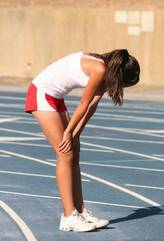|
What is Over-training? Over-training is what happens when an athlete or individual progresses exercise too much, too quickly. This can lead to injuries, general fatigue, severe muscle soreness, among many other symptoms. In order to improve your skills and fitness level, it is necessary to push yourself to see results. However, if you push yourself too hard, it can result in injuries that may limit your overall progress toward your goals. Here are some tips to help avoid over-training:
How Can a Physical Therapist Help?
1 Comment
9/12/2020 10:16:46 pm
If you do not train your skills, then you will never be able to use your body to great use. I mean, sure, you might have the body of a Greek God, but if you do not have any technique, then it is just a waste. You need to train and polish your skills if you want to be great. I feel like you are relying too much on your body. If you train, then I believe that you will be the greatest.
Reply
Leave a Reply. |
Archives
April 2022
Categories
All
Disclaimer: The information contained on this website is compiled from a variety of professional sources as well as the author's own experiences. The information should NOT be used in place of a visit to your healthcare provider or used to disregard any advice provided by your healthcare provider.
|


 RSS Feed
RSS Feed